Nuclear Weapons: History and Mystery
Nuclear weapons are weapons of mass destruction that derive their explosive power from nuclear reactions. They are among the most destructive weapons ever created and are capable of causing widespread devastation and loss of life on a scale that is difficult to comprehend.
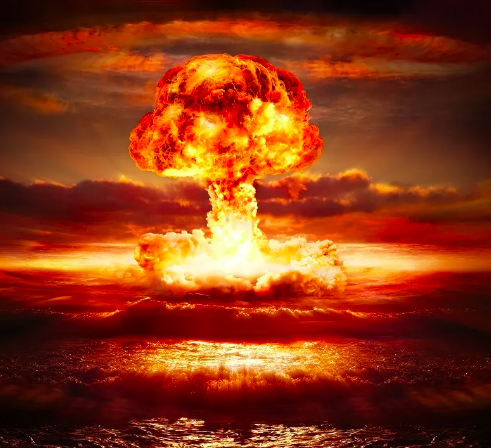
Nuclear weapons are weapons of mass destruction that derive their explosive power from nuclear reactions. They are among the most destructive weapons ever created and are capable of causing widespread devastation and loss of life on a scale that is difficult to comprehend. Nuclear weapons are primarily divided into two types: atomic bombs and hydrogen bombs.
Atomic bombs use nuclear reactions to release an enormous amount of energy in the form of an explosion. The first atomic bomb was used by the United States against Japan during World War II, with devastating effects. The two bombs killed approximately 200,000 people, the majority of whom were civilians. Hydrogen bombs, on the other hand, are much more powerful than atomic bombs and use a two-stage process to release even more energy. They use the energy from an initial atomic bomb explosion to compress and heat a secondary stage containing hydrogen isotopes, which then undergo a fusion reaction to release a massive amount of energy.
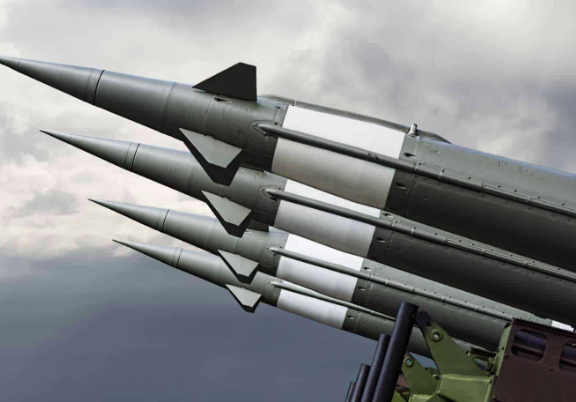
The development and testing of nuclear weapons has had a significant impact on international relations since their creation. During the Cold War, the United States and the Soviet Union engaged in a nuclear arms race that saw both countries build up massive arsenals of nuclear weapons. The potential for a nuclear war between these two superpowers was a constant source of tension, and the fear of a catastrophic conflict led to the concept of Mutually Assured Destruction (MAD), which holds that the threat of nuclear annihilation acts as a deterrent to war. Since the end of the Cold War, the number of nuclear weapons possessed by countries around the world has decreased significantly. However, there are still several countries that possess nuclear weapons, including the United States, Russia, China, the United Kingdom, France, India, Pakistan, Israel, and North Korea. The possession of nuclear weapons by these countries has been a source of ongoing concern, particularly in regions where tensions are high, such as the Korean Peninsula and the Middle East.
Despite the potential benefits of nuclear weapons as a deterrent to war, there are significant risks associated with their existence. Perhaps the most obvious risk is the potential for a nuclear war. Even a limited nuclear exchange could result in the deaths of millions of people and have catastrophic effects on the environment and global economy. There is also the risk of nuclear terrorism, in which a terrorist group obtains a nuclear weapon and uses it to cause mass destruction. While the likelihood of this scenario is considered low, the consequences would be devastating. Finally, there is the issue of nuclear proliferation, which is the spread of nuclear weapons to additional countries. The more countries that possess nuclear weapons, the greater the risk of nuclear conflict or accidental use.
Efforts to mitigate the risks associated with nuclear weapons have included arms control agreements and disarmament efforts. The Nuclear Non-Proliferation Treaty (NPT), which was signed in 1968, aims to prevent the spread of nuclear weapons and promote peaceful uses of nuclear technology. The treaty has been successful in preventing additional countries from acquiring nuclear weapons, but there are ongoing concerns about countries that possess nuclear weapons, such as North Korea, that may not adhere to the treaty's provisions.
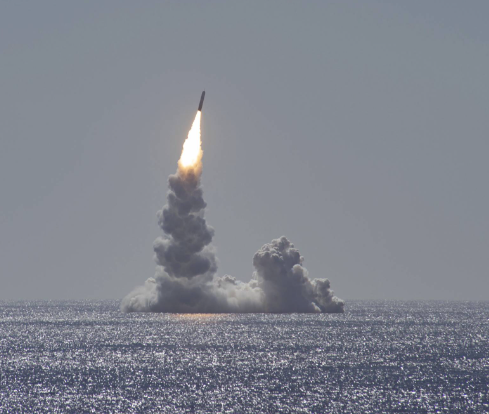
Nuclear Weapons: Good or Bad?
Nuclear weapons are among the most destructive weapons ever created, capable of causing widespread devastation and loss of life on a scale that is difficult to comprehend. While some argue that nuclear weapons serve as a deterrent to war, others believe that their existence poses a grave threat to humanity. In this article, we will explore both sides of the debate and try to answer the question: Are nuclear weapons good or bad?
Advantages of Nuclear Weapons
Proponents of nuclear weapons argue that their existence serves as a deterrent to war. The theory is that if a country possesses nuclear weapons, other countries will be less likely to attack them for fear of nuclear retaliation. This is known as the doctrine of Mutually Assured Destruction (MAD), which holds that the threat of nuclear annihilation acts as a deterrent to war.
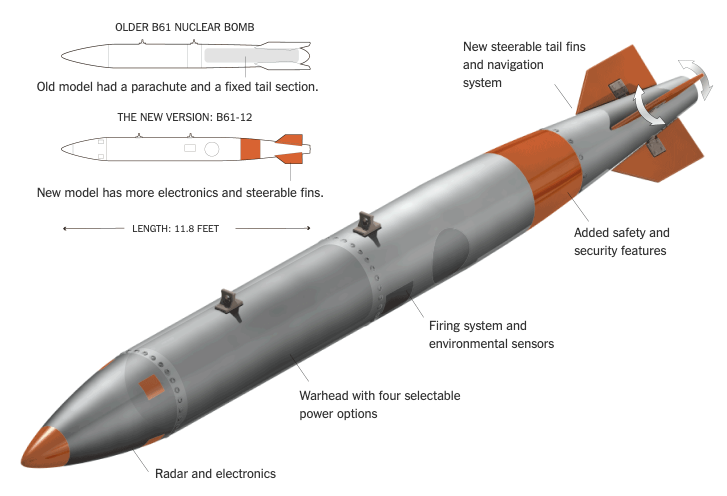
In addition, some argue that nuclear weapons have played a role in preventing large-scale conflicts since World War II. While there have been numerous regional conflicts and proxy wars, no major powers have engaged in a direct military conflict that could escalate to a nuclear exchange. This is often attributed to the presence of nuclear weapons and the fear of MAD.
Finally, nuclear weapons have been used in the past to bring an end to conflicts. The atomic bombings of Hiroshima and Nagasaki during World War II are often cited as examples of how nuclear weapons can be used to quickly end a war and prevent further loss of life.
Disadvantages of Nuclear Weapons
Despite the potential benefits of nuclear weapons, there are also significant risks associated with their existence. Perhaps the most obvious risk is the potential for a nuclear war. Even a limited nuclear exchange could result in the deaths of millions of people and have catastrophic effects on the environment and global economy.
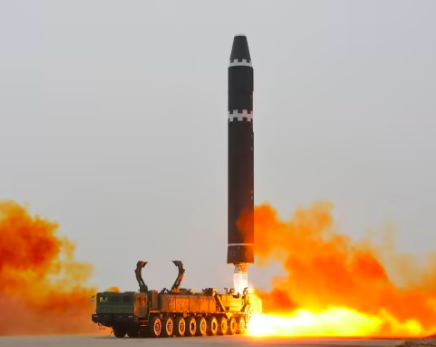
There is also the risk of nuclear terrorism, in which a terrorist group obtains a nuclear weapon and uses it to cause mass destruction. While the likelihood of this scenario is considered low, the consequences would be devastating.
Finally, there is the issue of nuclear proliferation. The more countries that possess nuclear weapons, the greater the risk of nuclear conflict or accidental use. There is also the risk of nuclear weapons falling into the hands of unstable or unpredictable leaders who may use them for irrational or ideological reasons.
Mitigating the Risks of Nuclear Weapons
While the risks associated with nuclear weapons are significant, there are steps that can be taken to mitigate them. One approach is to reduce the number of nuclear weapons in existence through arms control agreements and disarmament efforts. This could involve negotiating bilateral or multilateral agreements that limit the number of nuclear weapons possessed by each country or working towards a goal of complete nuclear disarmament.
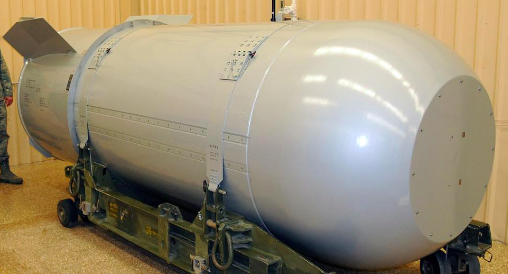
Another approach is to focus on strengthening international institutions and promoting peaceful conflict resolution. By working to prevent conflicts and resolve disputes peacefully, the likelihood of nuclear war can be reduced. Additionally, efforts can be made to strengthen the Nuclear Non-Proliferation Treaty (NPT) and prevent the spread of nuclear weapons to additional countries.
Finally, it is important to invest in alternative forms of energy and reduce dependence on nuclear power. By developing renewable energy sources and reducing reliance on nuclear power, the risks associated with nuclear weapons can be further mitigated.
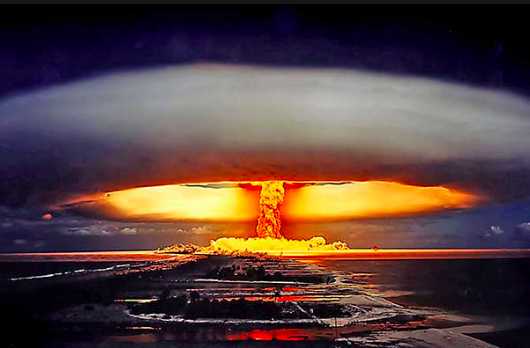
Conclusion
In conclusion, the question of whether nuclear weapons are good or bad is a complex one. While they have played a role in preventing large-scale conflicts, their existence poses significant risks to humanity. Ultimately, the decision of whether to possess nuclear weapons is a moral and strategic one that must be made carefully. By working to reduce the number of nuclear weapons in existence, strengthening international institutions, and investing in alternative forms of energy, we can help to mitigate the risks associated with these weapons and move towards a more peaceful world.




